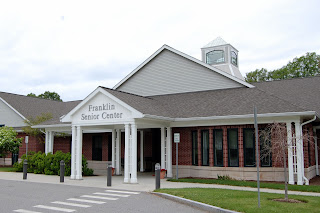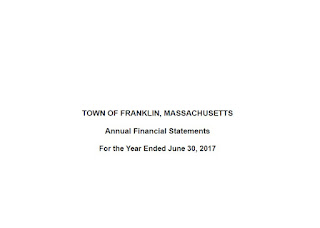This will be first of two meetings to review the Capital budget. You may recall that these capital budget hearings are usually held in November/December. The hearings are late this year as the State was late to certify the free cash total for Franklin.
Free cash is neither free nor cash. It is the accounting result of under spending what was authorized for the prior year's budget expenses, and receiving more revenue than had been forecast in the FY 2018 budget.
Franklin has historically used the free cash amount to build the individual stabilization funds (general, recreation, fire truck, etc.) and to fund the capital needs for the Town departments.
Capital budget presentations are scheduled from
- Fire
- Police
- Public Works
- Sewer Enterprise
- Water Enterprise
On Tuesday, Jan 15, capital budget presentations are scheduled from
- Schools
- Facilities
- Technology
- Recreation
After hearing all the presentations, the Finance Committee will vote to recommend some or all of these (with or without modifications) to be brought to the Town Council for their review and vote.
The complete agenda documents for the Jan 8 and 15 meetings can be found on the Town of Franklin pages
Jan 8
https://www.franklinma.gov/sites/franklinma/files/agendas/2019-01-08_finance_committee_agenda.pdf
Jan 15
https://www.franklinma.gov/sites/franklinma/files/agendas/2019-01-15_finance_committee_agenda.pdf
 |
| Finance Committee - Agenda - Jan 8, 2019 |





